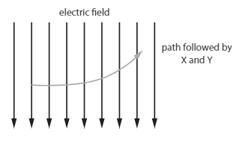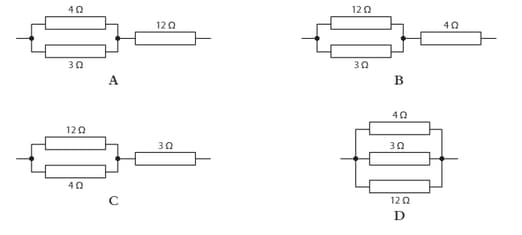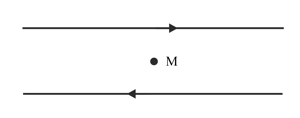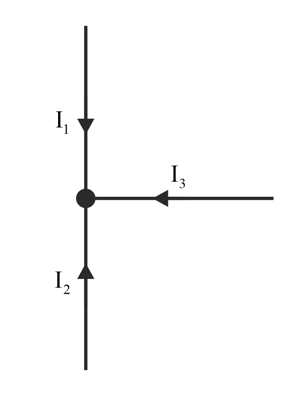K A Tsokos Solutions for Chapter: Electricity and Magnetism, Exercise 5: Exam-style questions
K A Tsokos Physics Solutions for Exercise - K A Tsokos Solutions for Chapter: Electricity and Magnetism, Exercise 5: Exam-style questions
Attempt the practice questions on Chapter 5: Electricity and Magnetism, Exercise 5: Exam-style questions with hints and solutions to strengthen your understanding. Physics for the IB Diploma 6th Edition solutions are prepared by Experienced Embibe Experts.
Questions from K A Tsokos Solutions for Chapter: Electricity and Magnetism, Exercise 5: Exam-style questions with Hints & Solutions
The diagrams show equal lengths of wires made of the same material and various cross-sectional radii. The drift speed of electrons is indicated. In which wire is the current the greatest?

Two charged particles and are projected horizontally with the same speed from the same point in a region of uniform electric field. Gravity is not negligible.

The two particles follow identical paths. What conclusion about and can one draw from this?
A charged particle moves in a circle of radius in a region of uniform magnetic field. The magnetic field is at right angles to the velocity of the particle and exerts a force on the particle. After half a revolution the change in the particle's kinetic energy is:
A negatively charged particle is at rest in a magnetic field . The force on the particle is :
An electron enters a region of magnetic field.

In which case is the initial force on the electron directed towards the bottom of the page?
In which of the following arrangements is the total resistance ?

Two long parallel wires carry equal currents in opposite directions. What field do the two wires produce at point M, which is midway between the wires and on the plane of the paper?

A student assigns currents at a junction in a circuit as shown in the diagram.

The student's calculations correctly give that and . The value of is:
